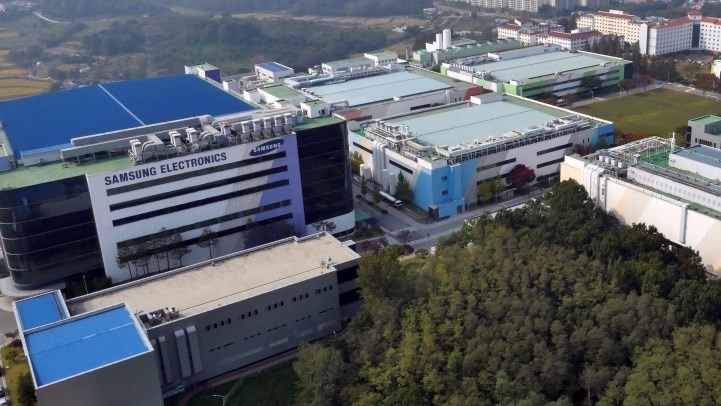
- South Korean tech giant has announced a massive investment plan
- $205 billion to be pumped into next-gen products during next three years
- Chip design and production, AI, 5G/6G and acquisitions will feature
Samsung has decided now is the time to invest heavily – very heavily – in securing its role as a global technology superpower, announcing plans to spend 240 trillion Korean won (US$205 billion) during the next three years on a broad range of sectors, including telecoms and specifically 5G/6G, so it can “lead the post-Covid industrial restructuring.”
Much of the investment, 75% in fact, will be focused on South Korea, where it aims to create tens of thousands of jobs, particularly for young people, and address the needs of small and medium-sized businesses.
In terms of focus areas, strengthening its R&D capabilities in AI, robotics, supercomputers, displays, devices and communications networking will be key to Samsung’s future, it noted in this announcement.
And much of its product development focus will be on chips, of which (as most companies are now aware) there is a critical shortage right now. “As the 4th industrial revolution is accelerating due to network technology innovation such as AI and 5G/6G, semiconductors are emerging as a core industry that influences the competitiveness of all industries including automobiles beyond IT, and the competition for hegemony between countries over semiconductors is getting fiercer,” noted Samsung, which plans to solidify is dominance in memory chips and become the world leader in system semiconductors, where it plans to expand its focus from mobile-centric chips into AI and data centre products.
Samsung makes note in its announcement of plans in the US (Intel’s new foundry service, TSMC’s investment) and Europe, which wants to be making 20% of the world’s semiconductors by 2030, to ramp up chip production and of the growing efforts by China to become a more powerful semiconductor factory. (See Intel to invest $20 billion in European chip plants.)
The company also referenced international trade tensions and the “reorganization of the global value chain,” as well as the growing importance of the biopharmaceutical sector in a world with an increasingly ageing population, as key drivers for its investment strategy.
And the plan involves inorganic as well as organic growth. “Samsung plans to secure leadership in strategic business by expanding investment, and plans to strengthen its technological and market leadership through bold M&As,” it noted.
While likely to be just a small part of the overall investment plans (Samsung hasn’t identified specific financial allocations as yet), it’s clear the company is accelerating its international telecoms infrastructure ambitions, building on the 5G business it has won at operators such as Verizon. (This, of course, complements its leadership position in the smartphone sector, though it is coming under pressure from the likes of Xiaomi).
Now it plans to “focus on strengthening software capabilities for communication network advancement and intelligence,” and plans to expand its systems development beyond virtualized and open radio access network and core platforms into other areas of comms equipment and “next-generation network operation solutions.”
And key to its efforts is a plan to be a leader in 6G, having already set out its stall last year with a white paper and 6G activities at its Advanced Communications Research Centre: That plan also has the backing of the South Korean government, which doesn’t want to cede the perception of 6G leadership to China (or anyone else for that matter). (See Samsung talks up its 6G credentials after Korea unveils funding plan.)
Including 5G and 6G in its near-term investment ramps confirms that Samsung is serious about the global opportunities in comms networking: It helps that the results of its 5G efforts are coming to fruition as Huawei drifts away as a global player and the industry shifts more towards a new era of more IT- and cloud-oriented networking infrastructure, which opens the door for experienced tech players with big pockets to challenge the likes of Ericsson, Nokia and Cisco.
If any of its planned “bold M&A” is in the telecoms sector, the industry could be in for an accelerated tectonic shift.
- Ray Le Maistre, Editorial Director, TelecomTV
Email Newsletters
Sign up to receive TelecomTV's top news and videos, plus exclusive subscriber-only content direct to your inbox.




